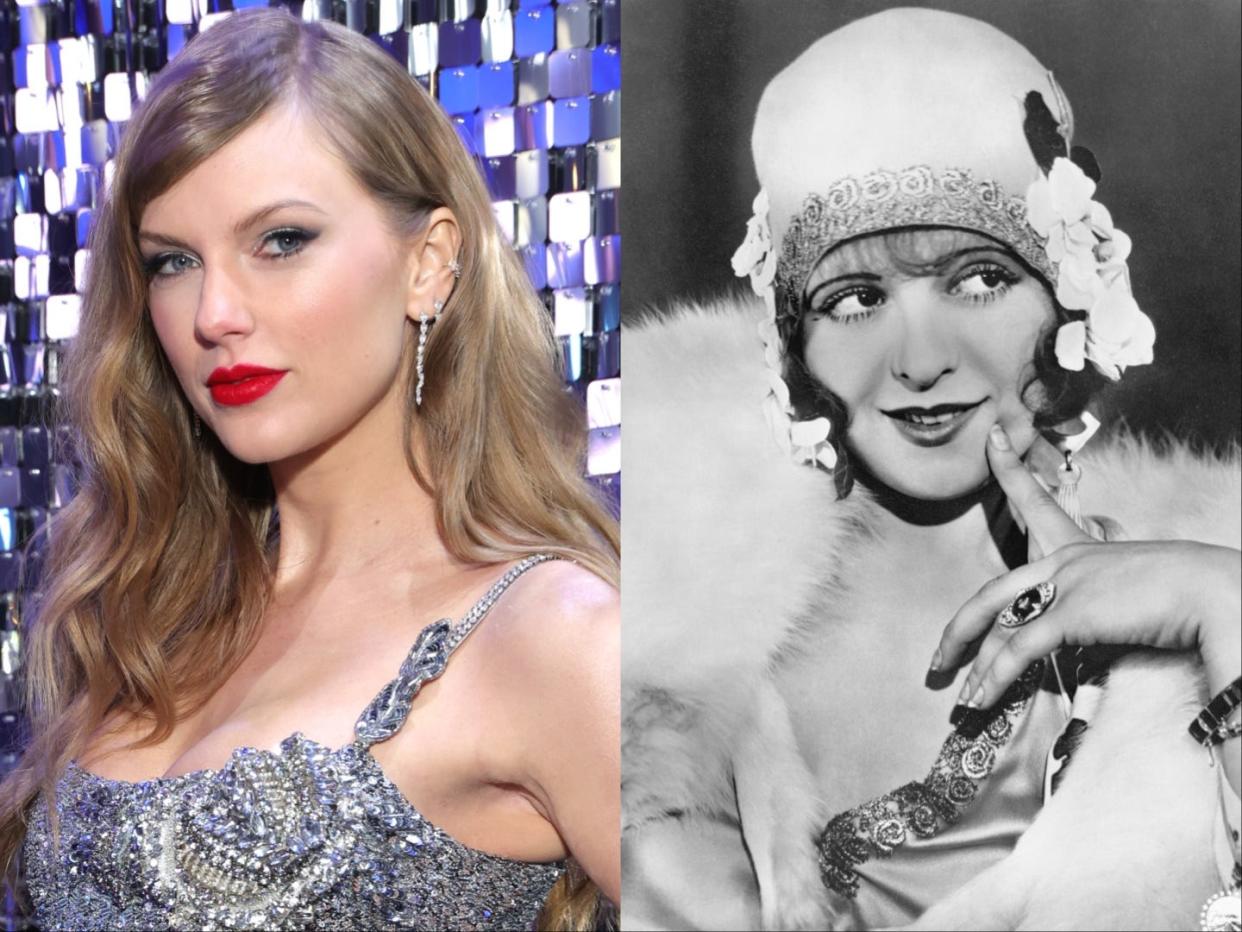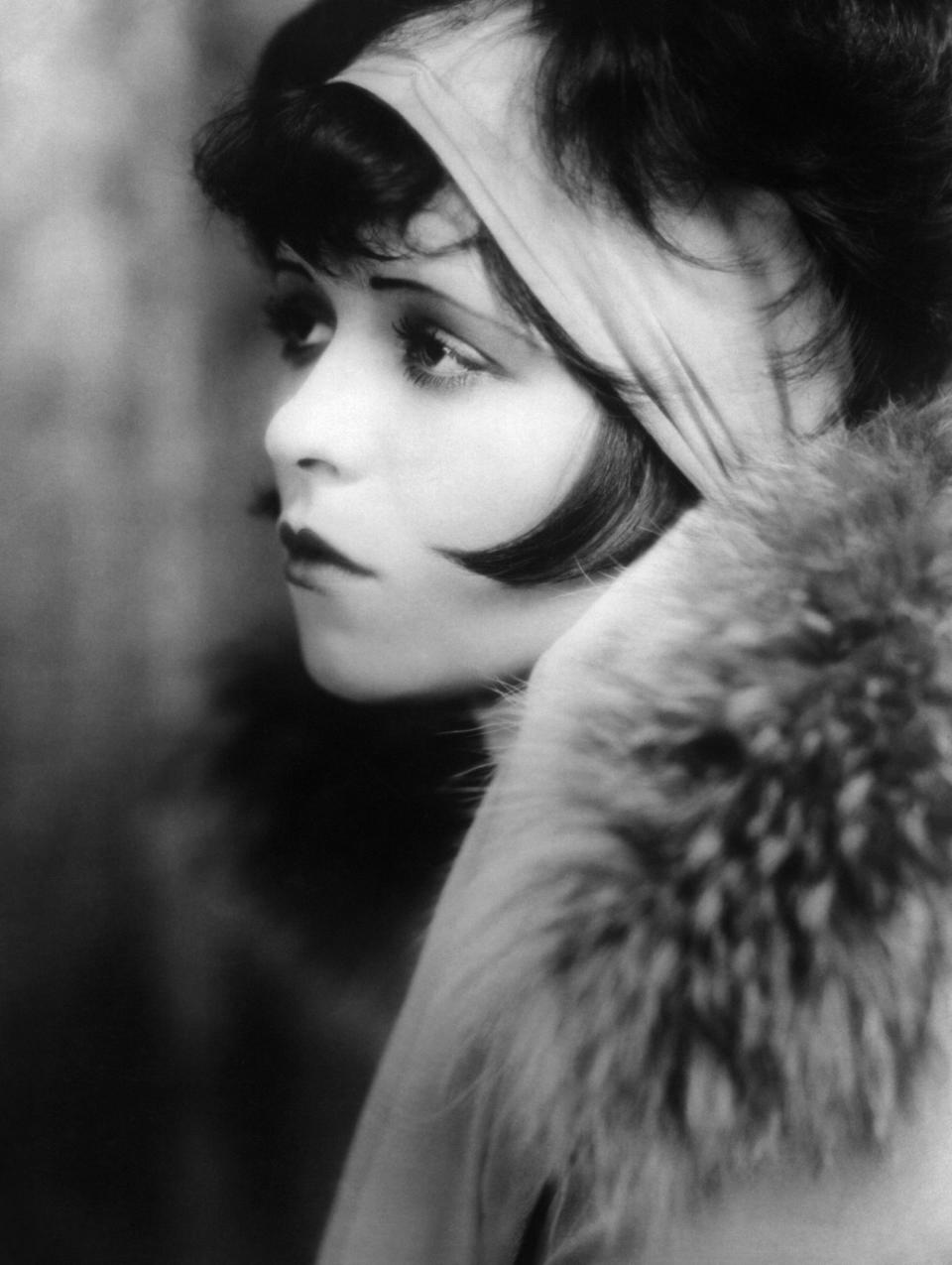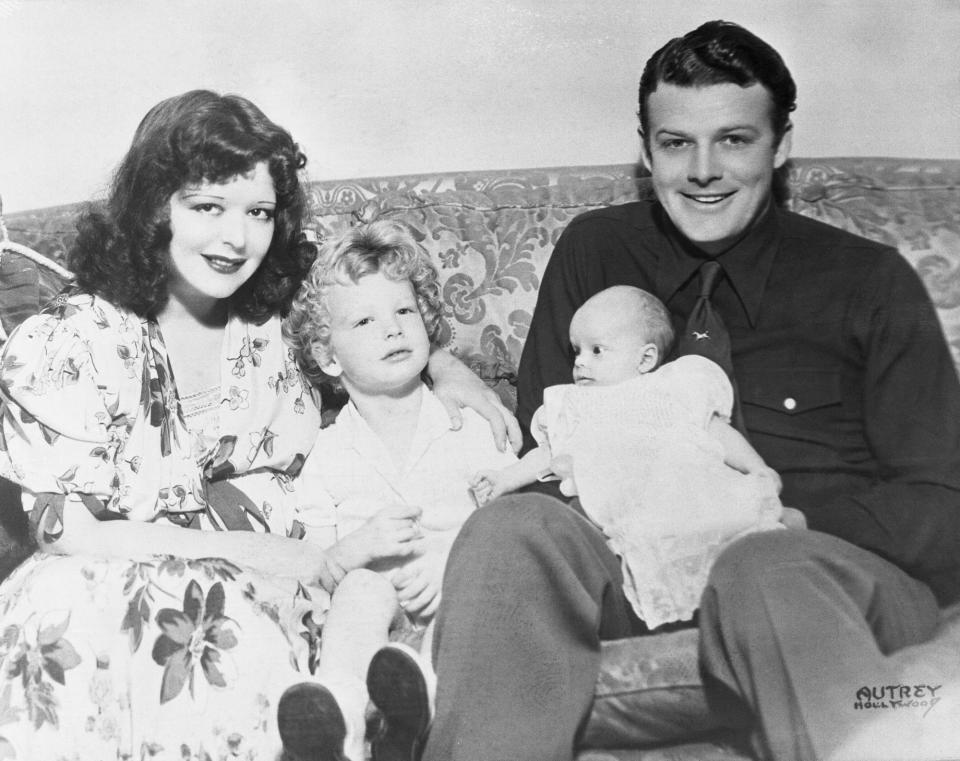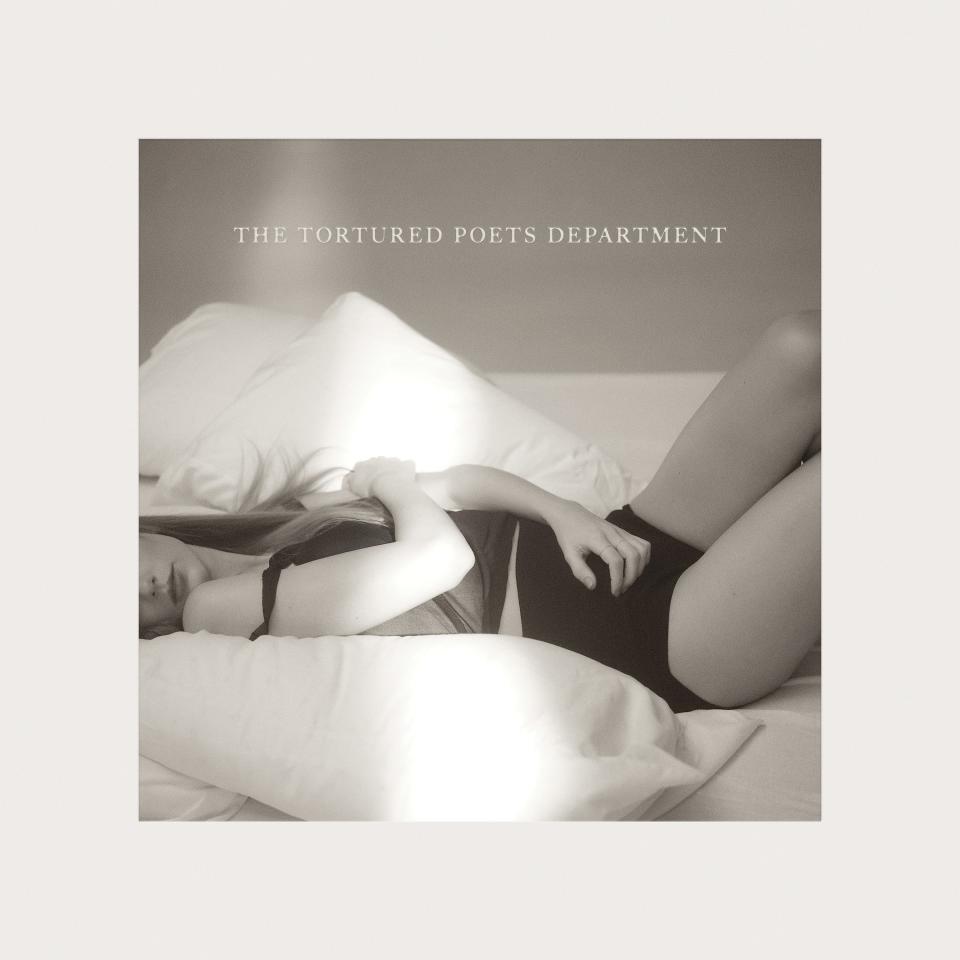Clara Bow's family thinks the silent-film star would have loved Taylor Swift's song about her

Taylor Swift's new studio album, "The Tortured Poets Department," has been released.
The last track on the standard edition of the album is named "Clara Bow" after the silent film star.
The actor's great-granddaughters spoke exclusively to BI about hearing the song for the first time.
"You look like Clara Bow in this light" is how Taylor Swift begins the closing track of the standard edition of her latest album, "The Tortured Poets Department," which was released on Friday.
The song, itself titled "Clara Bow," is an intimate, guitar-led number that sees Swift recalling conversations with suited-up music executives who compare her to trailblazing, somewhat similar-looking women who came before her.
First, there's Bow herself, the 1920s movie star who broke the Hollywood mold with her unrivaled confidence and candor both on and off screen. This is followed in the second verse by "You look like Stevie Nicks in '75" (the Fleetwood Mac frontwoman has coincidentally written a poem for Swift in the liner notes of physical copies of the album).
It's not hard to see why Swift has been told she looks like either Bow or Nicks; at different points across her three-decade-spanning career, Swift has borne physical resemblances to each of them (think: her unruly curly hair and arched screen-siren eyebrows in her "Fearless" days, and her "Red"-era bangs and boho-inspired fashion choices).
But beyond what she's been told by others, by naming the song "Clara Bow," Swift appears to be signaling an affinity with the original "It" girl whose career reached its apex almost a century ago.
That's certainly how Bow's family — who are more than delighted that the world's biggest pop star has decided to name a track after their late ancestor — has interpreted the song.
"Clara Bow was someone who was unapologetically herself and I think Taylor can say the same of herself," Brittany Grace Bell, one of Bow's great-granddaughters, told Business Insider. "In the song, she sings, 'In a town of fakes, you're the real thing,' and I think she's referring to both herself and Clara. They're not afraid to be themselves and rise above the noise."
Bell's cousin and another one of Bow's great-granddaughters, Nicole Sisneros, who also spoke to BI, said she "felt chills" hearing the song for the first time this week.
"It is hauntingly beautiful the way Taylor uses her songwriting ability and her artistry to draw parallels between Clara's life and her own. It's a really beautiful testament to both of their legacies," she added.

While Sisneros said that both she and Bell, who are the granddaughters of Bow's son Rex Bell Jr., "fell in love with the song" as soon as they heard it, they were apprehensive given that Bow's legacy often gets reduced to its most "salacious" elements.
"It's so easy to sensationalize someone's life and focus on the hardships, and that's truly what happened to Clara her whole life," Sisneros said, referring to the tabloid obsession with Bow's troubled upbringing, broken engagements, and mental health struggles, which eventually led her to be dubbed "Crisis-a-day-Clara" by her manager, B.P. Schulberg, according to biographer David Stenn.
As Sisneros pointed out, Swift also "faces constant scrutiny," which she thinks meant Swift was able to "really separate what's sensationalized and speculation and focus on the true beauty of an individual."
One misconception Bell was keen to point out is the narrative that Bow was "pushed out of Hollywood" at age 28. "It isn't true," she said. "She left on her own accord as she wanted to live the rest of her life and raise her children so she retired out on a ranch in Nevada."

This is far from the first time Swift has drawn musical inspiration from historical pop-culture icons. In her discography, she's given a shout-out to Golden Age Hollywood couple Elizabeth Taylor and Richard Burton, written a whole song about Rebekah Harkness, the eccentric 1940s socialite and composer who once owned Swift's Rhode Island home, and dedicated a track to Kennedy family matriarch Ethel Kennedy.
"Taylor is a master at digging. I think looking into the history of Hollywood, certainly, she would have come across Clara Bow and connected with her as an artist and being focused on her raw talent," Sisneros theorized.
"She was probably looking to draw inspiration from people of the past who would consider themselves tortured poets," Bell pointed out. "Clara was a poet and able to speak poetry through her, her acting; Taylor's a poet through her songwriting."
Although Swift did not reach out to the cousins before the release of the song ("We hope that somehow we could connect," Sisneros said), both have long been admirers of her discography.

Sisneros took her eldest daughter to Swift's The Eras Tour during its stopover at Las Vegas' Allegiant Stadium last year. Bell couldn't make it, as she was heavily pregnant with her daughter at the time, but in a "fun connection," her daughter turned one the same day as the release of "The Tortured Poets Department."
Ultimately, for Sisneros and Bell, Swift's immortalization of their great-grandmother in "Clara Bow" is a gift they can hand down to future generations.
They think Bow would have loved Swift, too, referencing something Bow once said about Marilyn Monroe, which Bell thinks could equally apply to the pop star.
"I never met Marilyn Monroe, but if I had, I would have tried very hard to help her. A sex symbol is a heavy load to carry when one is tired, hurt, and bewildered," Bow is quoted as saying in Stenn's biography, "Clara Bow: Runnin' Wild."
"I feel like she would say the same thing about Taylor," Bell concluded. "I think she would feel a nurturing sense over Taylor as today's 'It' girl."
Read the original article on Business Insider

 Yahoo News
Yahoo News 
